 'Jin' named the word of the year by cross-strait netizens
'Jin' named the word of the year by cross-strait netizens Chinese scientific expedition goes to build new Antarctica station
Chinese scientific expedition goes to build new Antarctica station
 Chinese naval escort fleet conducts replenishment in Indian Ocean
Chinese naval escort fleet conducts replenishment in Indian Ocean 17th joint patrol of Mekong River to start
17th joint patrol of Mekong River to start China's moon rover, lander photograph each other
China's moon rover, lander photograph each other Teaming up against polluters
Teaming up against polluters
XINING, Dec. 29 -- Kelsang, 35, has spent two days being treated for flu in Nyanthok health center, and his wife for four, a total expense of 220 yuan (36 U.S. dollars).
They only have to pay five percent of their total costs. The remainder will be covered by medical insurance.
"Seeing a doctor is no longer expensive," said Kelsang with a smile.
Since October, northwest China's Qinghai Province has been running a diagnosis and treatment grading system which encourages patients to go to local health centers for minor illness such as colds and chronic diseases including diabetes and coronary heart disease. They should go county-level hospitals for small surgery like an appendectomy and to prefecture or provincial hospitals for the most serious problems.
"In the past, I went to prefectural hospitals when I was ill. It was both inconvenient and costly, so I chose not to go if I could stand the pain," said Kelsang.
He was surprised that a township health center had qualified doctors, a nice environment and a wide range of medicine.
"My wife can lie down comfortably on a bed to receive her infusion,unimaginable in big hospitals where beds are usually held for the seriously ill," said Kelsang. "In big hospitals, demand for beds always greatly exceeds supply."
The Nyanthok health center in the Tibetan Autonomous Prefecture of Huangnan has seven doctors and nine nurses. The health center supervises six village health centers and takes care of 9,600 residents.
Han Fayun, head of the center, said the government gave a total of 384,000 yuan (40 yuan per resident per year) to set up health files, offer vaccinations, provide maternal and child health care as well as offering visiting doctors and nurses to patients with chronic complaints.
"At first I didn't believe these physical examinations were all for free, but now I know," said Kelsang. "Besides free check-ups, medicine is cheap."
Having worked at the center for more than a decade, Han is delighted to see more locals coming for help.
"Our patients pay cost price of everything we prescribe, and pay only one yuan for all handling charges, such as fees for registration, diagnosis, treatment, and injection," said Han, adding that as much as 95 percent of the expense can be covered from the patients' health insurance. In big hospitals, the insurance may only cover 75 percent.
Han is proud of his work. He knocks on door after door with his fellow medical workers to ask if the elderly people or children in the families need anything.
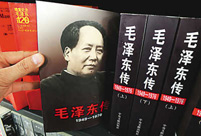 Commemorate 120th birth anniversary of Mao Zedong
Commemorate 120th birth anniversary of Mao Zedong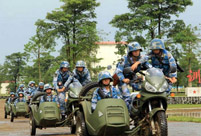 Female soldiers of PLA Marine Corps in training
Female soldiers of PLA Marine Corps in training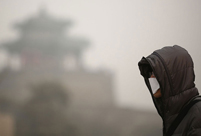 Chinese cities to have a very grey Christmas as smog persists
Chinese cities to have a very grey Christmas as smog persists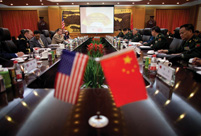 China and U.S. - the national image in each other’s eyes
China and U.S. - the national image in each other’s eyes The Liaoning's combat capability tested in sea trial
The Liaoning's combat capability tested in sea trial Chinese pole dancing team show their moves in snow
Chinese pole dancing team show their moves in snow Rime scenery in Mount Huangshan
Rime scenery in Mount Huangshan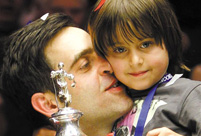 Ronnie O'Sullivan: My children mean the world to me
Ronnie O'Sullivan: My children mean the world to me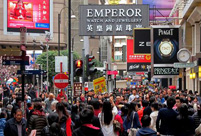 Shopping in Hong Kong: a different picture
Shopping in Hong Kong: a different picture SWAT conducts anti-terror raid drill
SWAT conducts anti-terror raid drill AK-47 inventor dies at 94
AK-47 inventor dies at 94 Mother practices Taiji with her son
Mother practices Taiji with her son  Crashed French helicopter salvaged
Crashed French helicopter salvaged Winter travels in Anhui
Winter travels in Anhui  Bird show opens to public in Calcutta, India
Bird show opens to public in Calcutta, IndiaDay|Week|Month